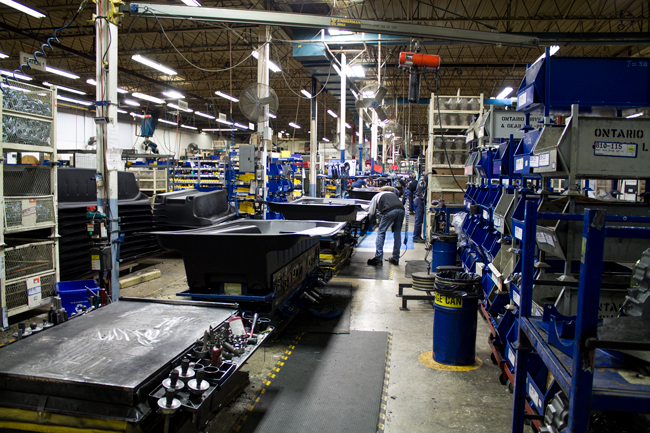
Tax reforms could be ‘devastating’ for small manufacturers, CME says
by Canadian Manufacturing.com Staff

As blowback against the federal tax changes continues, the manufacturing and exporting association says the reforms pursue "too-narrow" a definition of tax fairness

In the manufacturing sector, there are nearly 68,000 companies with fewer than 10 employees and another 20,000 with fewer than 100 employees, CME noted. PHOTO: David Kennedy
TORONTO—Tensions are running high over the the federal government’s proposed tax changes for small businesses.
Finance Minister Bill Morneau got an earful at a town hall question-and-answer session late last week in Oakville, Ont.—the latest battle in a war of words spurred by the Liberal’s proposed reforms that critics say will hurt doctors, farmers and small business owners, among others.
The government recently softened its tone, saying technical fixes are in the works, but has otherwise stuck by the tax changes it says will level the playing field for Canadian earners.
Meanwhile, Canadian Manufacturers & Exporters has come out against some the reforms.
The association, which represents thousands of manufacturers across the country, said Oct. 2 that the changes pursue “too-narrow” a definition of tax fairness and could have “devastating consequences” for small manufacturing businesses.
“Manufacturers are urging the government continue to encourage entrepreneurship, growth and investments by revisiting the proposed changes,” Dennis Darby, president and CEO of CME, said in a statement. “We are suggesting the government does this by working towards longer-term and more comprehensive reforms to create a tax system that is simple and equitable.”
While CME said it is committed to finding solutions that deter tax-avoiding behaviour, it added that rewarding entrepreneurship, innovation and risk-taking should also be a priority.
After assessing the proposed changes, the association is encouraging the government to continue allowing spousal income splitting, but eliminate the practice for children under 24 years of age.
“We are also proposing the government creates a tax credit for CCPCs that allows them to claim 110 per cent of their labour and capital expenditures against taxable income,” CME said. “This would lower the company tax burden and encourages employment and investment but only for companies that are not tax-avoiding shells.”
The tax issue is expected to crop up again this week when Prime Minister Justin Trudeau meets with his provincial counterparts.
—With files from The Canadian Press